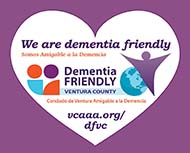Maintaining a healthy lifestyle is essential for everyone, but it’s especially crucial for seniors. Eating a nutritious diet, getting regular exercise, and getting enough sleep is vital for maintaining good health as you age. Here are some tips to help seniors stay healthy and active:
Eat a Nutritious Diet
Seniors should focus on eating a nutrient-dense diet. People 65 and over are at risk of developing chronic diseases, including diabetes and cardiovascular disease, so getting the vitamins you need from food instead of supplements is crucial. In addition, it can be difficult for older adults to meet their daily nutritional needs. Since as we age, our sense of smell and taste diminishes, often leading to decreased appetite. Seniors may also have a more difficult time chewing or swallowing certain foods. Assisted Caregivers can help prepare meals and assist at mealtime to ensure seniors meet their daily nutritional needs.
Stay Active & Get Regular Exercise
Regular exercise is important for overall health, but it’s vital for seniors. Exercise can help reduce the risk of chronic diseases, improve mood, and boost energy levels. Seniors should aim for at least 150 minutes of moderate exercise per week. It’s best to start slow with regular exercise by walking for 10 minutes each day. These Low Impact exercises are a great way to increase heart rate without adding too much stress on the body.
Get Enough Sleep
Getting enough sleep is important for maintaining good health, especially as you age. The older you get, the harder it can be to fall asleep and stay asleep throughout the night. However, seniors can improve their sleep quality with these tips:
- Keep a sleep schedule; getting up and going to bed at the same time every day, even on weekends
- Exercise regularly but not too late in the day
- Avoid caffeine and alcohol before bedtime
- Use the bedroom for sleeping only
- Take a warm bath before bed soothe muscles
Signs Seniors Might Need Additional Help
Older adults who can’t manage daily activities, such as bathing or dressing independently, may benefit from having a caregiver. Seniors with chronic illnesses may also need assistance managing medications or monitoring symptoms at home. Caregivers can be an important part of seniors’ lives because they can provide social support and help seniors stay healthy and independent. If you’re a senior or know someone who is, be on the lookout for these signs that a caregiver may be necessary:
- Difficulty completing daily activities
- Chronic illness or health condition
- Trouble managing medications or symptoms
- Social isolation
- Limited mobility
- Depression
- Memory loss
No matter your age, living a healthy lifestyle is essential. For seniors, though, it’s especially crucial to eat right, get regular exercise, and get enough sleep. Additionally, knowing when to get assistance from a caregiver can be key to seniors maintaining their health. Assisted Caregivers and home health aides can help with exercise, meal preparation, and other activities of daily living to help your loved one stay safe and healthy. To learn more about the services Assisted offers, visit www.AssistedCares.com.








